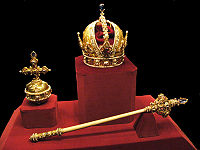|
While I was once very active, bordering perhaps upon too active upon Wikipedia, I no longer have the time nor the passion to contribute to the same degree. Still, my use of Wikipedia as a reference has remained consistent, and I find myself still fixing the odd typo every so often, in the hopes that I can continue to help. Wikipedia has changed so much since I first came - as perhaps most things do in eight years. Still, I cannot help but be amazed at how much of an impact something as "simple" as a free encyclopedia has had upon the world. Knowledge must be free, and I'm glad to see that Wikipedia has ensured that will always be the case. I won't drop a retirement banner on this page, that's much too cliche. Even this stretches the boundary. I'll continue to visit - drop me a line if you'd like my help in something. I can't promise a prompt response, but I'll respond....sometime :) ThankseditI'd like to thank The Random Editor, from whom's userpage I used as a base. Tip of the Dayedit
|
It's a scrollbar...have fun...!
|
|
Pages I've created
The following articles comprise a list of the articles that I have created. Since the creation, many of the articles have changed completely, no doubt for the better. Nevertheless, I am proud that I can say I was the original creator of these articles. |
|
To do list
Create Liepzig Debate |
|
Shiny Things

|
|
Licensing
| ||||||






